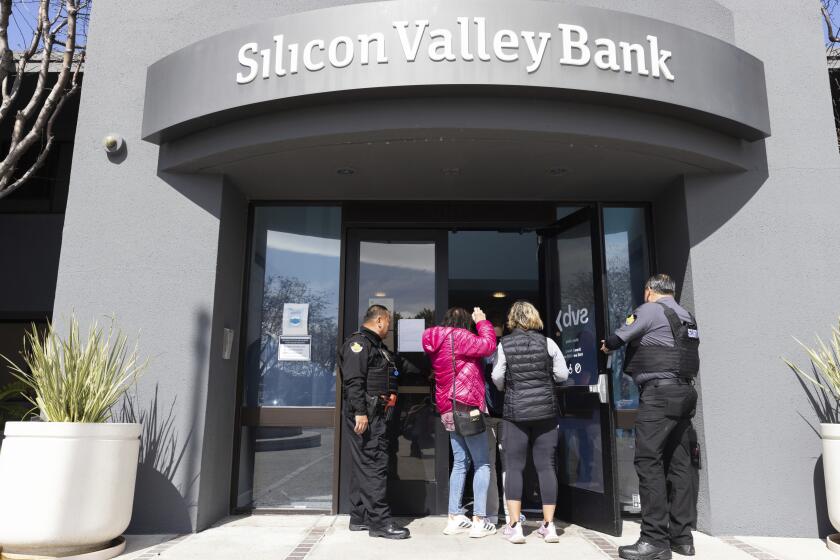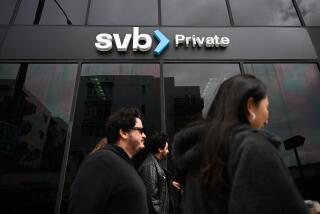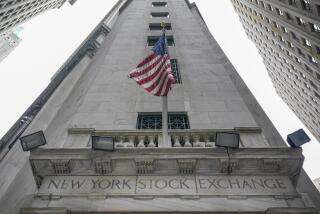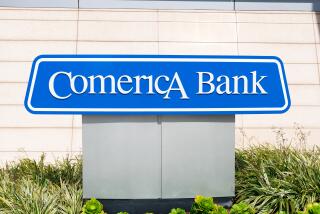First Republic Bank shares slide in volatile trading session
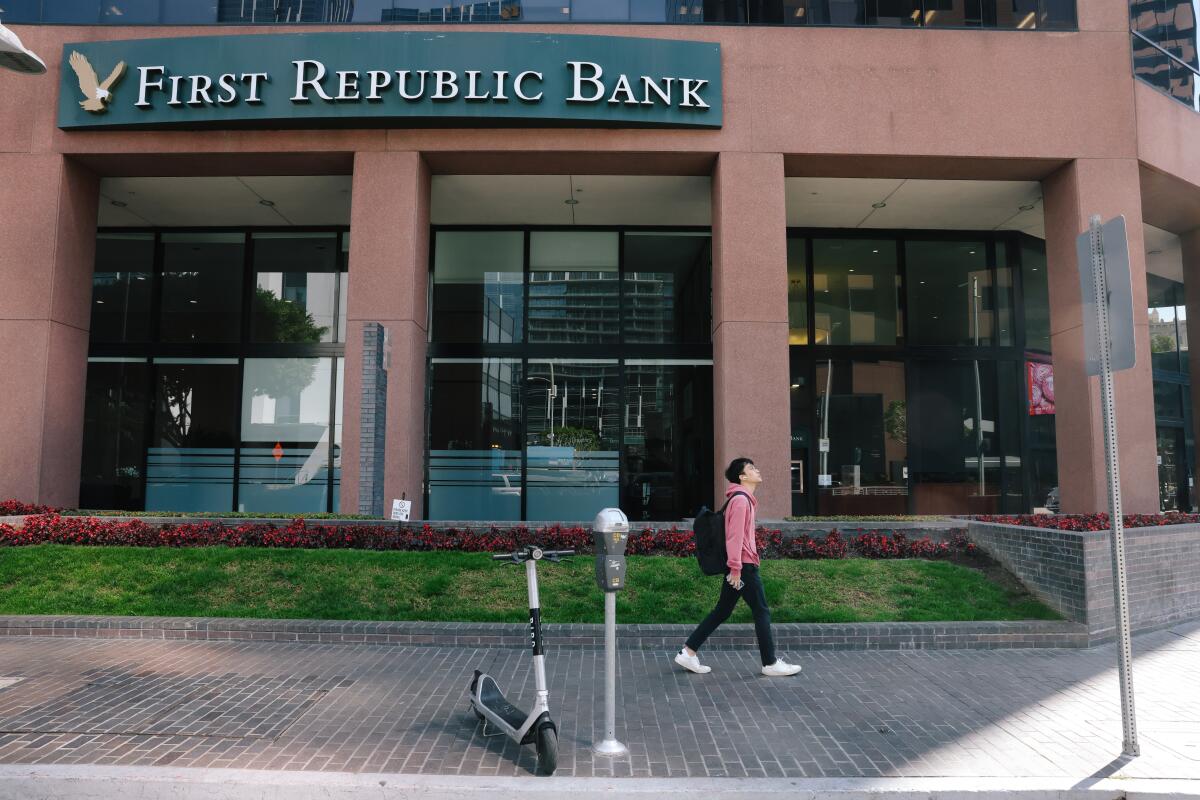
- Share via
Shares of First Republic Bank fell an additional 47% on Monday as investors remain uneasy about the bank’s financial condition even after a group of the nation’s largest financial institutions teamed up on a $30-billion rescue package.
Trading in First Republic shares was halted numerous times because of the volatility. The shares have dropped about 88% in the last two weeks.
First Republic Bank received a $30-billion rescue package from 11 of the biggest U.S. banks last week in an effort to prevent its collapse. Over the weekend, the bank’s credit rating was downgraded by S&P Global Ratings, which said that the rescue package should ease near-term liquidity pressures, but it “may not solve the substantial business, liquidity, funding, and profitability challenges” that it believes the San Francisco-based bank probably is now facing.
Volume surpassed 184 million shares, compared with the daily average of less than 14 million shares. Shares closed at $12.18, down 47%, after touching an all-time low of $11.52 in intraday trading.
In other banking news, the bidding process for the successor of Silicon Valley Bank is being extended by the Federal Deposit Insurance Corp. to give more time to work out a potential deal.
Silicon Valley Bank failed late last week, prompting fears of wider upheaval. Here’s what you should know about the collapse and what comes next.
The FDIC said Monday that there’s been “substantial interest” from multiple parties for Silicon Valley Bridge Bank. The agency said it’s going to allow parties to submit separate bids for Silicon Valley Bridge Bank and its subsidiary, Silicon Valley Private Bank, in order to simplify the bidding process and expand the pool of possible bidders.
Qualified insured banks and qualified insured banks working with nonbank partners will be able to submit whole-bank bids or bids on the deposits or assets of the institutions. Bank and nonbank financial firms will be allowed to bid on asset portfolios.
Bids for Silicon Valley Bridge Bank must be submitted by 5 p.m. Pacific time Friday; bids for Silicon Valley Private Bank are due by 5 p.m. Pacific time Wednesday.
On Friday, the parent company of Silicon Valley Bank filed for Chapter 11 bankruptcy protection; Silicon Valley Bridge Bank was not included in the Chapter 11 filing.
SVB Financial Group is no longer affiliated with Silicon Valley Bank after its seizure by the FDIC. Its collapse was the second-biggest bank failure in U.S. history, after the demise of Washington Mutual in 2008.
Some social media users claim Silicon Valley Bank failed due to its ‘woke’ agenda. Experts point to poor investment strategies, customer base.
The shuttering of Silicon Valley Bank and of New York-based Signature Bank has revived bad memories of the financial crisis that plunged the United States into the Great Recession of 2007-09.
The federal government, determined to restore public confidence in the banking system, moved to protect all the banks’ deposits, even those that exceeded the FDIC’s $250,000 limit per individual.
The turmoil in the banking industry spread to Europe and forced a deal under which UBS will acquire troubled rival Credit Suisse for almost $3.25 billion. The deal was orchestrated by Swiss regulators. Shares of UBS rose 3.3%.
The FDIC said late Sunday that New York Community Bank had agreed to buy a significant chunk of failed Signature Bank in a $2.7-billion deal.
Shares of New York Community Bancorp jumped 32%.
Despite all of the concerns swirling around the banking sector, stocks on Wall Street rose Monday after all of the moves being made to restore confidence in the banking sector.
More to Read
Inside the business of entertainment
The Wide Shot brings you news, analysis and insights on everything from streaming wars to production — and what it all means for the future.
You may occasionally receive promotional content from the Los Angeles Times.

